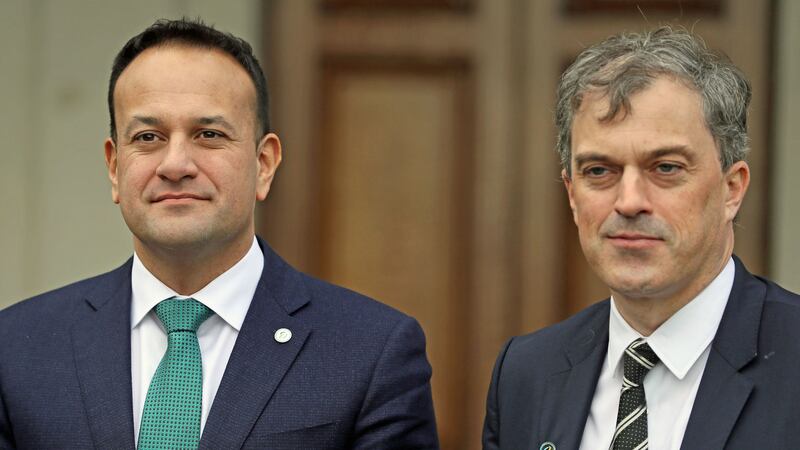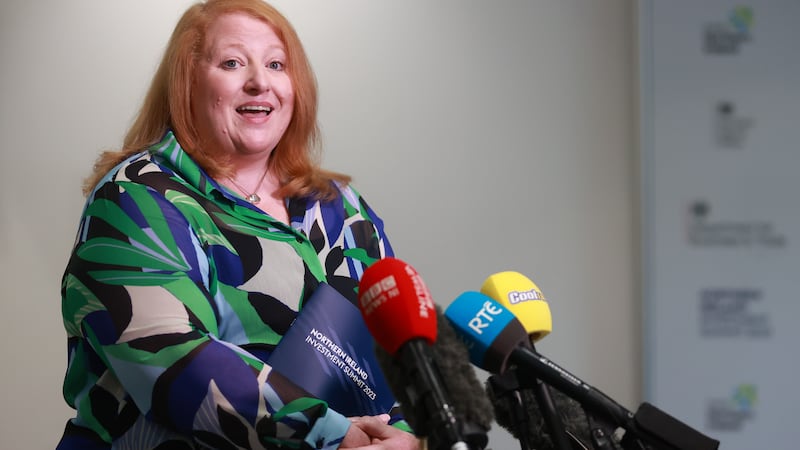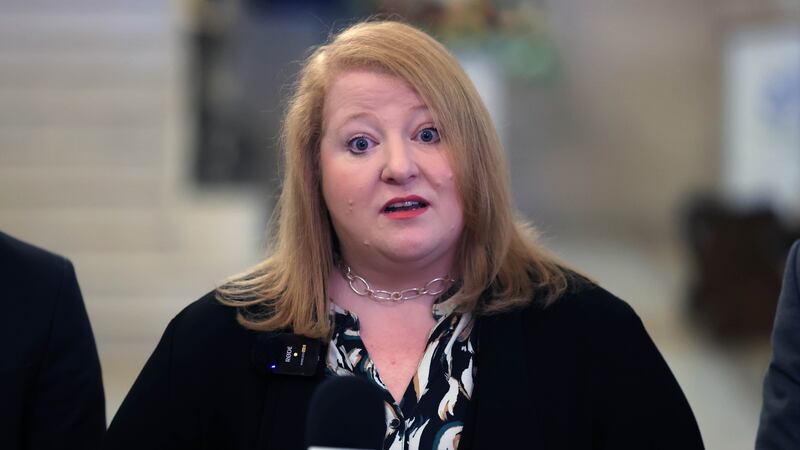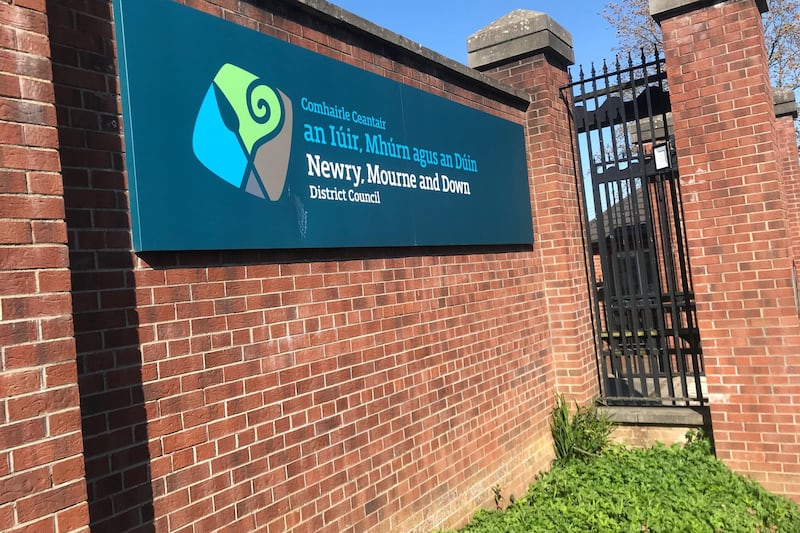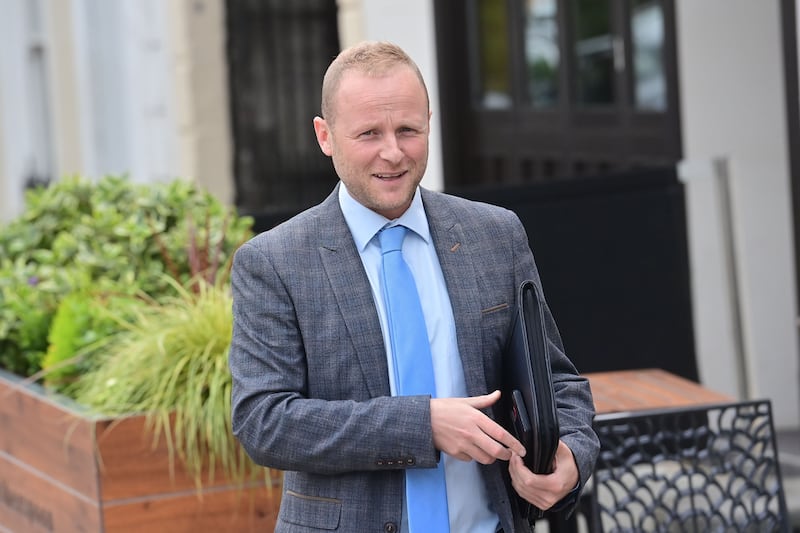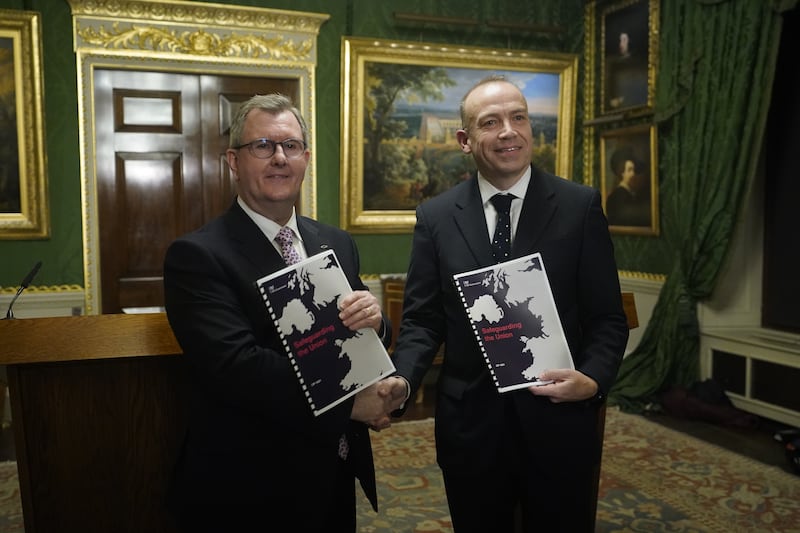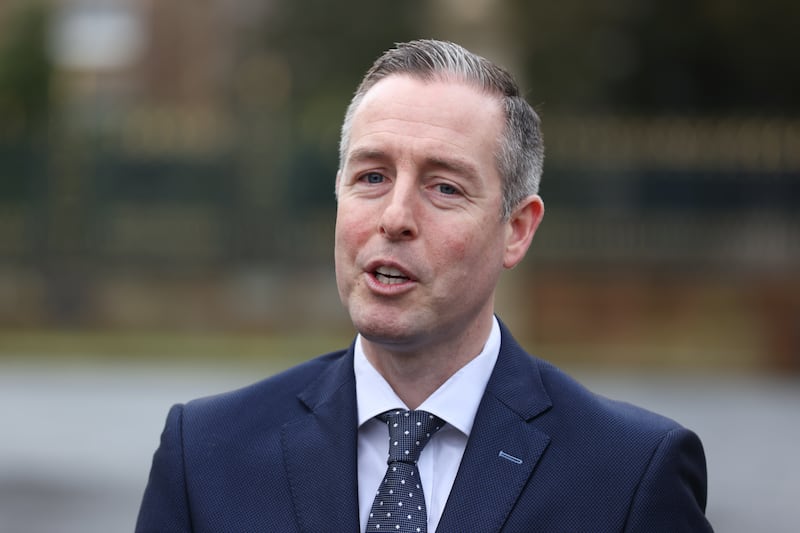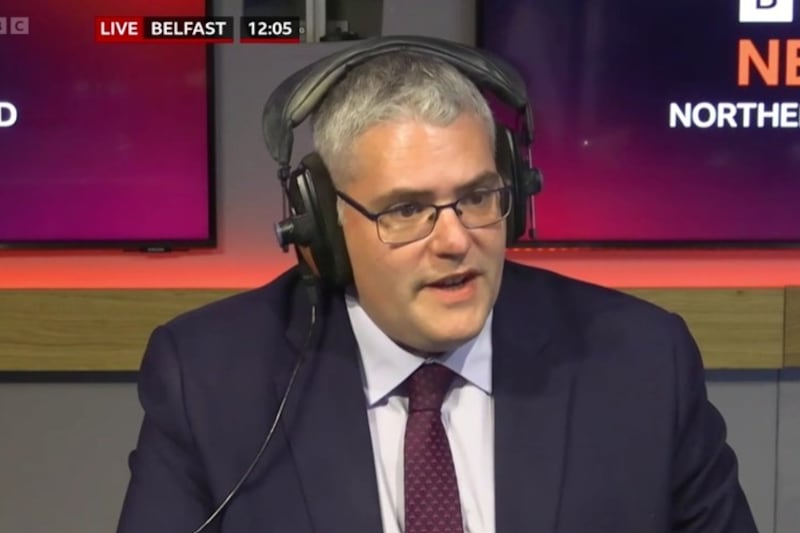The secretary of state has said in the absence of a deal to get Stormont up and running, an assembly election will be called in January.
Julian Smith said such an election would "mark a failure for every politician" involved.
Westminster has imposed interim measures in order to ensure the north's public services can continue since Stormont collapsed more than 1,000 days ago, however the legislation is due to run out in the new year, and Mr Smith is bound by duty to call an assembly election.
Speaking at the British Irish Council in Dublin today, at which no Northern Ireland representatives were present, the secretary of state said a Stormont election weeks after the general election would leave Belfast without political direction.
Read More: Hundreds protest over lack of devolved Stormont government
"The 13th of January is the deadline, after that Northern Ireland will be without political direction," Mr Smith said
"This situation cannot continue, the people of Northern Ireland need political decision making.
"We need both Arlene (Foster) and Michelle (O'Neill) and the other parties to get stuck in after the general election has taken place.
"I want to focus on talks, I want to get Northern Ireland up and running.
"That's what young and old people tell me day in and out, but it is inevitable that when the legislation comes to an end, there is a duty to call an election, which would mark a failure on every politician on Northern Ireland and that's why I am calling on them to get back around the table."
When it was put to Mr Smith that the deadline may not be taken seriously, as Stormont has missed many deadlines before, he remained adamant the stalemate could not continue.
He said: "The deadline of the 13th of January is a real deadline, the legislation that gives civil servants guidance on how to take political decisions comes to an end on that date, and then it's on the duty of the secretary of state to call elections.
"That deadline means if we don't get Stormont up and running again in Northern Ireland's citizens will have general election and assembly elections called soon after."
Mr Smith added he is confident the current impasse can be overcome.
"What gives me confidence is, every single meeting with every single party shows me there are talented leaders, leaders that do want to get back into executive," he said.
"What we need is the very small number of remaining issues to be negotiated or dealt with, and for people and leaders to take the leap in the interest in Northern Ireland citizens."
A number of attempts to find a negotiated deal to restore the institutions have ended in failure.
The last DUP/Sinn Féin-led powersharing coalition imploded in January 2017 when the late Martin McGuinness quit as deputy first minister amid a row about a botched green energy scheme.
The fallout over the Renewable Heat Incentive (RHI) was soon overtaken by disputes over the Irish language, the ban on same-sex marriage and the toxic legacy of the Troubles.
